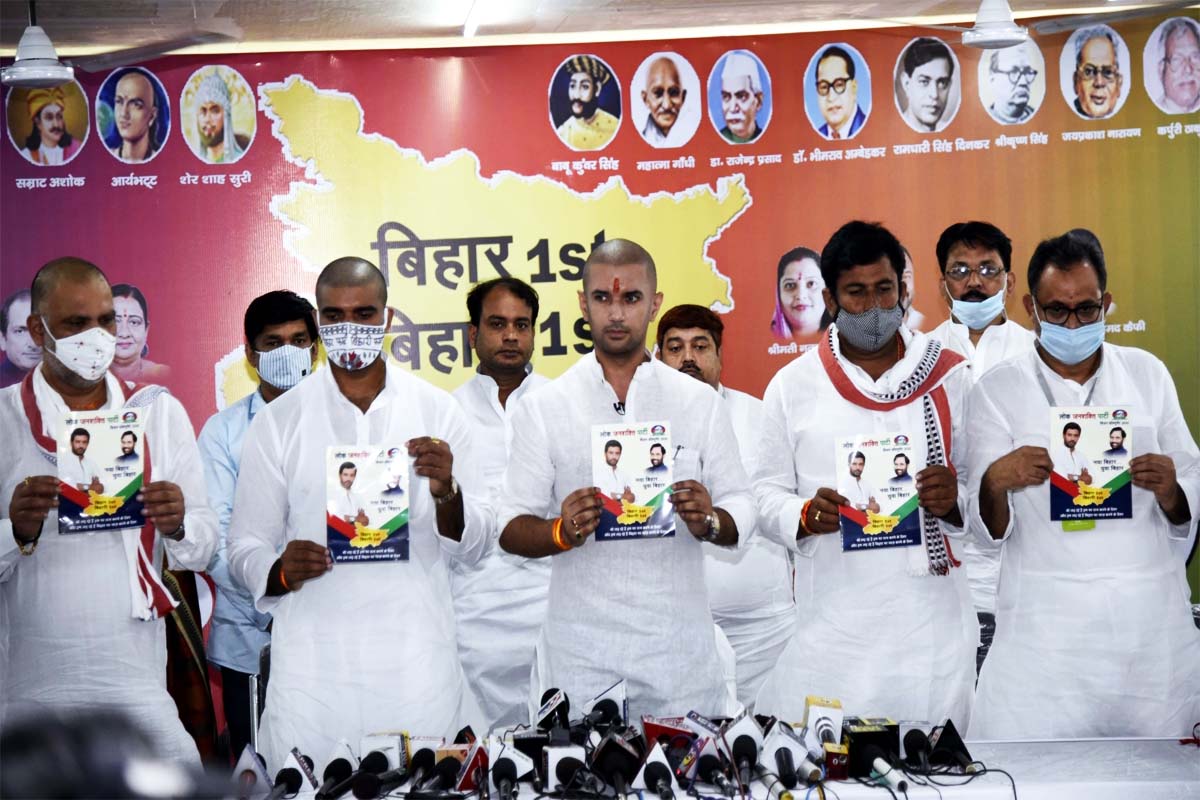GDSF could be a kingmaker in post-election Bihar
The Lok Janshakti Party is giving the ruling NDA a tough time by fielding agitated candidates against the JD-U in several constituencies.

Patna, Oct 31: The Grand Democratic Secular Front (GDSF), an alliance of six parties led by Rashtriya Lok Samta Party (RLSP), could emerge as a king-maker amongst the National Democratic Alliance led by the BJP and the Grand Alliance led by the Rashtriya Janata Dal (RJD), once the voting phase in the Bihar Assembly elections gets over.
The GDSF has pockets of influence in several districts of Bihar and thus holds the capability of cutting into the vote shares of parties like the Janata Dal-United (JD-U), RJD, and the Congress.
Political experts are of the opinion that if the GDSF manages to bag 10 per cent of the votes, it could play the role of a kingmaker in case of a tight situation after the Assembly elections.
GDSF’s strongholds
Headed by RLSP leader and former Union minister Upendra Kushwaha, the GDSF is contesting in 104 of the 243 seats, including 80 by Bahujan Samaj Party and 20 by AIMIM.
Besides these three parties, Suheldev Bharatiya Samaj Party (SBSP), Samajwadi Janata Dal Democratic (SJDD) and Jantantrik Party Socialist (JPS) are part of the GDSF.
“The RLSP has good ground support in south and central Bihar and districts such as Buxar, Shekhpura, Jamui, Munger, East and West Champaran, Aurangabad, Nawada, Rohtas and Kaimur are considered as its stronghold. Its candidates can surprise bigger political parties,” remarked Patna-based lawyer Bharat Sharma.
He said that in the 2015 Assembly elections, the RLSP bagged two seats and 3.6 per cent votes.
“The RLSP strength is well recognised in the alliance and among other political parties. Kushwaha had pointed out to ‘Padhai, Kamai, Dawai, Sinchai aur Kamai’. Now, the same tagline is used by Tejashwi Yadav in his political rallies at places where voting in the second phase is scheduled for November 3. It indicates that something is cooking between these two alliances,” Sharma opined.
GDSF ally BSP has stronghold over minority votebank
With a stronghold in districts such as Gopalganj, Rohtas, and Kaimur, the BSP had won six seats in 2005. Though none of its 228 candidates managed to win in the 2015 elections, the party gained 2 per cent votes.
Mayawati and Kushwaha have done two joint rallies in Bhabhua and Karadhan, the stronghold of these two parties.
AIMIM could also attract minority votes
The first time the AIMIM contested the elections was in 2015, when it won a seat from the Muslim-majority constituency of Kishanganj.
Kushwaha and Asaduddin Owaisi have jointly addressed around 20 rallies, mostly in the Muslim-majority Seemanchal areas.
Ranbir Kushwaha, a member of Kishanganj Market Association, is of the opinion that the AIMIM is capable of cashing in on the minority vote bank in constituencies like Kishanganj, Araria, Purnia and Katihar in the Seemanchal area.
Amongst the other allies of the GDSF, the SBSP has good grip over some constituencies in Kaimur and Rohtas, while the JPS has stronghold over Ghoshi and the SJDD over some constituencies in Darbhanga and Madhubani.
LJP fielding agitated candidates
The ruling NDA in Bihar, meanwhile, is having a tough time from the Lok Janshakti Party (LJP) which is fielding rebellion candidates against the JD-U in several constituencies.
Earlier this month, the LJP had severed ties with its former ally — the NDA – and announced its decision of going solo this election. Many candidature aspirants who were denied an opportunity due to the seat sharing formula between the JD-U and the BJP, have joined the LJP and have been given tickets.
Political experts presume that the situation is likely to benefit the Mahagathbandhan (Grand Alliance) in the state.
Peculiar situation in Siwan constituencies The Maharajganj constituency in Siwan is likely to witness the most interesting contest as JD-U has fielded Hem Narayan Singh while the LJP has fielded Deo Ranjan Singh, who turned rebel after the BJP denied him the ticket. The situation is similar in all the eight Assembly constituencies in Siwan.
Both Shah and Singh contested the 2015 Assembly elections on tickets of the JD-U and the BJP, respectively. Shah had defeated Singh by a margin of 20,000 votes.
The poll campaigns in Maharajganj have also been quite interesting so far, with Shah slamming his opponents for washing hands and maintaining distance with the voters.
Notably, every time he shakes hands with the voters, Singh washes his hands in order to minimise the threat of contracting Covid-19. Vijay Shankar Dubey, the Congress candidate, has so far been campaigning from inside his SUV. (IANS)


